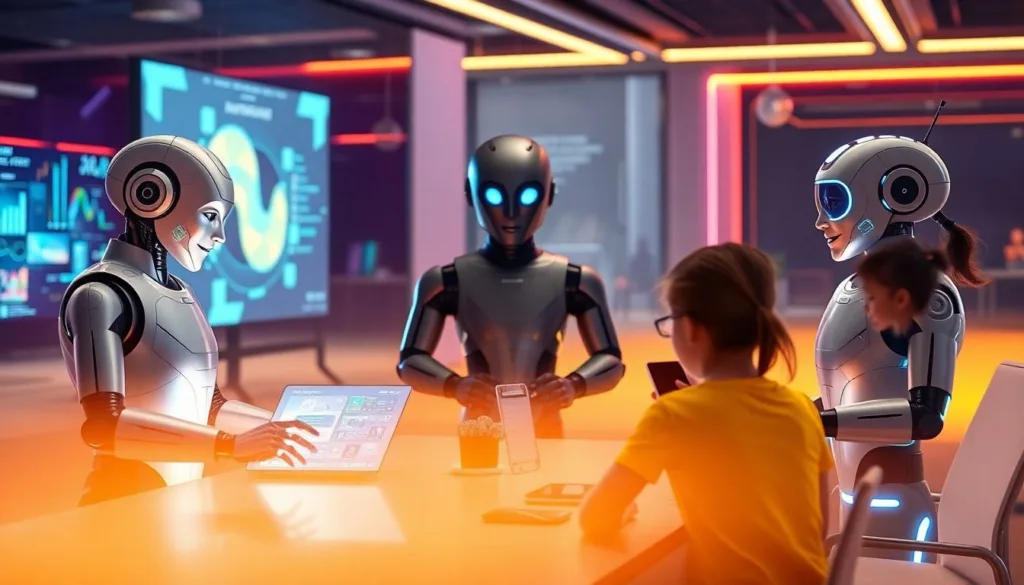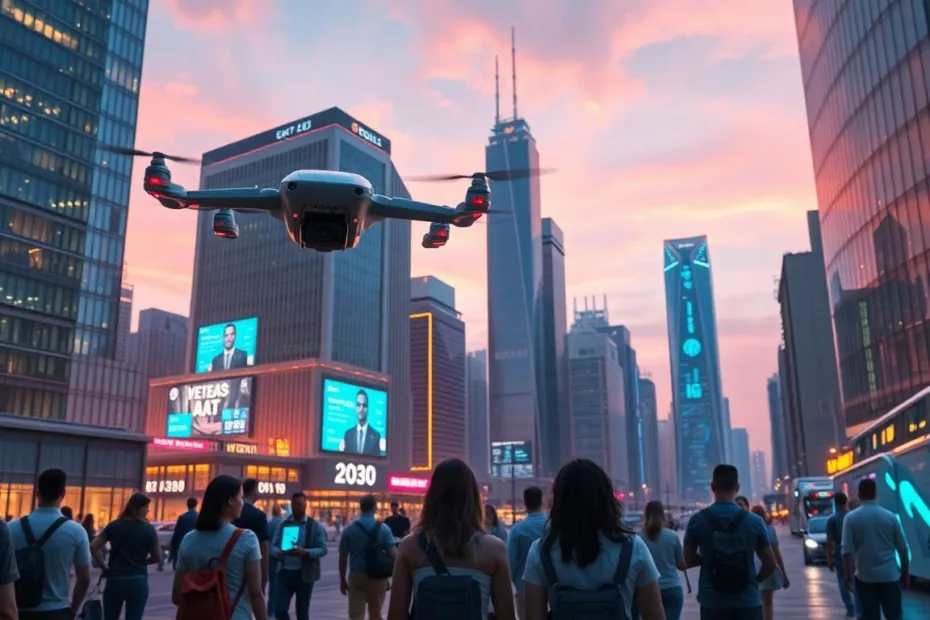The Future of AI Agents: What to Expect in the Next Five Years | Trends & Predictions.
Explore the future of AI agents in the next five years. Learn about the trends, innovations, and advancements in AI technology that will shape customer support, business operations, and everyday life.
Introduction
Artificial intelligence (AI) has transformed various industries, from healthcare to customer support. As we move into the 21st century, AI technology continues evolving, promising even more impressive capabilities. AI agents will become increasingly sophisticated in the next five years, reshaping how we interact with technology and manage everyday tasks.
In this post, we’ll explore the future for AI agents, from innovations in natural language processing (NLP) to the rise of emotional intelligence in AI. Over the next half-decade, let’s dive into the key trends and predictions defining the AI landscape.
AI Agents Will Become More Emotionally Intelligent
One of the most exciting advancements for AI agents is their ability to recognise and respond to human emotions. Today’s AI agents are primarily designed to interpret language and provide efficient, task-oriented responses. However, we can expect AI agents to be soon equipped with emotional intelligence (EQ), enabling them to understand mood, tone, and emotional cues.
This development will enhance customer service experiences. AI can tailor responses based on the customer’s emotional state, offering empathy and support when needed. For instance, an AI-powered chatbot in customer service could detect frustration in a customer’s voice and respond with calming, reassuring language.
Smarter Integration Across Platforms
As AI technology advances, we’ll see AI agents seamlessly integrate across various platforms, creating a more unified digital ecosystem. Imagine an AI assistant that can move effortlessly between your smartphone, smart home devices, and work platforms, offering context-aware assistance.
For example, you might ask your AI assistant to set a reminder while you’re driving. The same assistant can update your phone calendar, adjust your home’s thermostat, and prepare a shopping list. This cross-platform integration will make AI assistants more intuitive and useful in everyday life, removing device friction and streamlining tasks.
Personalisation at Scale
Personalisation is already a key feature of AI agents, but as machine learning models improve, AI will become even more personalised. By analysing your behaviours, preferences, and social media activity, AI agents can offer tailored experiences like never before.
For businesses, this means offering highly personalised customer service and marketing strategies. For example, an AI agent in an e-commerce store could recommend products based on past purchases, browsing history, and personal interests, adjusting the recommendations in real time as you interact with the site.
Improved Natural Language Processing (NLP) Capabilities
While NLP has come a long way, the next five years will see huge strides in its development. AI agents will better understand complex conversations, handle ambiguous language, and respond naturally. This will make interactions with AI feel more like conversations with humans, reducing misunderstandings and creating more fluid dialogues.
In addition, AI will be able to understand and generate multiple languages with greater ease, making AI assistants more globally accessible. Businesses can expect AI agents to manage customer interactions multilingually, further enhancing global customer support and engagement.

AI-Driven Automation in Business Operations
AI agents will become pivotal in automating business operations in the coming years. From data entry and analysis to customer relationship management (CRM), AI will handle more complex tasks that traditionally required human oversight.
For example, AI agents can conduct meetings, generate reports, and analyse vast amounts of data to offer actionable insights. This type of automation will significantly reduce operational costs and improve business efficiency. As AI evolves, we’ll see more innovative uses of AI-driven automation across industries.
Conclusion
The future of AI agents is auspicious. As AI technology evolves, we can expect more thoughtful, personalised, and emotionally intelligent AI agents to enhance how we work and live. AI agents will become vital to our daily routines through seamless integration across platforms, improved conversational abilities, or personalised experiences.
Businesses that adopt and integrate these AI advancements will have a significant edge, offering enhanced customer support, increased efficiency, and better decision-making processes. The evolution of AI agents will truly revolutionise how we interact with technology in the next five years.
FAQs
Q1: Will AI agents replace human customer service representatives?
AI agents will handle many routine tasks and provide initial customer support, but human agents will still be needed for complex and emotionally sensitive issues.
Q2: How can businesses integrate AI agents into their operations?
Businesses can integrate AI agents through customer service platforms, CRM systems, and business automation tools to streamline workflows and improve efficiency.
Q3: What industries will benefit the most from AI agents in the future?
AI advancements will greatly benefit e-commerce, healthcare, finance, and customer service industries, improving operational efficiency and customer engagement.
Read Another Article: How to Create an AI Agent for Customer Support
